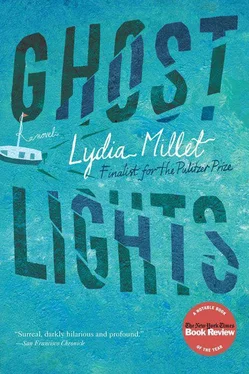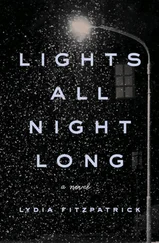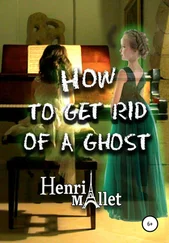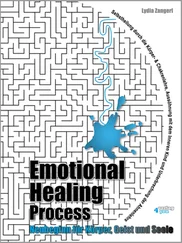Lydia Millet - Ghost Lights
Здесь есть возможность читать онлайн «Lydia Millet - Ghost Lights» весь текст электронной книги совершенно бесплатно (целиком полную версию без сокращений). В некоторых случаях можно слушать аудио, скачать через торрент в формате fb2 и присутствует краткое содержание. Издательство: W. W. Norton & Company, Жанр: Современная проза, на английском языке. Описание произведения, (предисловие) а так же отзывы посетителей доступны на портале библиотеки ЛибКат.
- Название:Ghost Lights
- Автор:
- Издательство:W. W. Norton & Company
- Жанр:
- Год:неизвестен
- ISBN:нет данных
- Рейтинг книги:5 / 5. Голосов: 1
-
Избранное:Добавить в избранное
- Отзывы:
-
Ваша оценка:
- 100
- 1
- 2
- 3
- 4
- 5
Ghost Lights: краткое содержание, описание и аннотация
Предлагаем к чтению аннотацию, описание, краткое содержание или предисловие (зависит от того, что написал сам автор книги «Ghost Lights»). Если вы не нашли необходимую информацию о книге — напишите в комментариях, мы постараемся отыскать её.
How the Dead Dream
Ghost Lights
Ghost Lights
Ghost Lights — читать онлайн бесплатно полную книгу (весь текст) целиком
Ниже представлен текст книги, разбитый по страницам. Система сохранения места последней прочитанной страницы, позволяет с удобством читать онлайн бесплатно книгу «Ghost Lights», без необходимости каждый раз заново искать на чём Вы остановились. Поставьте закладку, и сможете в любой момент перейти на страницу, на которой закончили чтение.
Интервал:
Закладка:
“Could belong to the guide,” said the lieutenant, and turned back to the others.
They were passing around sandwiches, eating them standing up. Hal’s damp log was the only seat in the house. Someone offered him a sandwich, the cadet with the harelip scar, and he took it gratefully. Maybe after he ate he would be stronger, maybe it would invigorate him. He wolfed it down inside a minute, barely registering the contents. He drank the rest of his water and someone gave him a can of juice. It was quiet for a while as they all ate, hardly any birdsong, until a radio squawked and a low murmur of conversation started.
He got up to pee in the woods, picked his way over tree roots and ferns for privacy. Staring at a thin, light tree trunk with thorns up and down the trunk, ants traveling up and down between the thorns, he noticed movement far off, in the shadows — what? A dark shape — a long, low animal, roughly the size of a dog. Were there dogs in the jungle? It moved more like a cat, though. Jumped from a stand of bamboo to some trees and was gone. He wiped his eyes, which ached from tiredness or dryness or something. Hallucinations, now. He should go back to the boat. He was sick, possibly. In the tropics, viruses thrived.
He was no better than the neurotic bohemians.
•
The trail continued on the other side of the campsite but it was more overgrown. There were vines, and now and then a cadet took out a machete and hacked at one.
Hal dragged after the column, defeated. Sometimes he had to climb over a down log, encrusted with fungus, and pieces of rotting bark got into his shoes and irritated his ankles and heels. He had to stop to pull them out and then catch up to the others, who waited for him. There were biting insects, so he slathered on some bug juice a cadet handed back. He did not bother trying to hear their exchanges; anyway they were mostly lost up ahead.
After a while a light rain began to patter on the leaves and his shoulders. The cadets had ponchos on now. He had nothing. But his shirt was already soaked and he found he didn’t mind the rain; the insects bit less. Not too much rain hit the ground, anyway, it seemed to him, much of it trapped above them in the canopy.
It was late afternoon when they turned around. Hal wasn’t sure how it happened, but they turned, and he was so grateful he smiled as he stood watching them file past, waiting to bring up the rear again. The lieutenant told him they were headed back to the boats.
“That’s it?” said Hal.
“We’ve been walking six hours give or take,” said the lieutenant, nodding. “We got no sign since the campsite. We’re tracking thin air. We got a timepiece, that’s it. Plus there’s a storm moving in. And we don’t want you collapsing on us.”
“Me?” asked Hal weakly, and as he fell into step behind them wondered if they were turning around for his sake. He wanted to weep with gratitude.
•
It was night when they got back to the boats, dark and raining. Hal could barely see — was so blurry with fatigue he blundered along the trail, slipping, with his eyes on nothing but the back of the man in front of him. That was his fixed point, that was his everything. He heard greetings in front of him, saw the shine of water beyond the light of the boats, but registered nothing more in the dark except the fact that he could sit down now, he could sit down. His legs shook violently as he sat and someone put something on his back, a blanket, then put a hot drink in his hands — a hot drink. How? But he did not think, he only drank and rested his bones. It was hot chocolate, possibly. Sweet and thick.
Hans was beside him, sitting in the boat, a clap on the back.
“. . sorry,” said Hans. “But C Team believes it located a guerrilla training camp. In that sense the mission has been an exceptional success. And they have you to thank.”
“Gorilla?” asked Hal, barely above a whisper.
“Guerrilla. Guatemalan guerrillas. Possibly Mayan.”
“I see,” said Hal, and something vague went through his mind about Rigoberta Menchú and the Peace Prize. The killing of civilians; the Guatemalan refugees, straggling to Mexico. . but he was tired, too tired. He couldn’t think of it now. He drank, half-dropped the empty cup at his feet. He wanted to slide down, lie down on Hans’s lap. Maybe he could. But no. Other side: a clean slate.
Fumbling, he spread out the blanket on the seat beside him, where Hans was not.
“. . in troops,” Hans was saying. “Possibly airpower.”
“Humanitarian?” asked Hal weakly, but he was already lying down, arranging the side of his face on the blanket. He felt the hardness beneath it against his cheek, but it did not stop him.
• • • • •
As he trudged up the dock to the hotel he had the dawn at his back, bands of pale pink over the sea. Exhaustion was making him woozy, unsure of himself; it took over everything. He might still be dreaming. There was a crick in his neck. Old man . The palm fronds dipped a little in the breeze off the ocean, almost bowing. . he and the palms deferred together, it seemed to him, his bent neck and their dipping fronds.
The beach was deserted except for a short wide guy in a baseball cap, raking sand. Hal went by him and pushed up the hill, passing beneath a coconut palm. A falling coconut could kill you if it hit you on the head. The neurotic bohemians had said so. Everywhere there were hazards, waiting.
He turned and looked back at the sea but there was a mist above the surface and he could barely make out the powerboat anymore. Was he losing his vision? A ridiculous thought. But there was something unreal about all of it. As though eyesight could be stolen, like an object. . he felt a sudden panic and rubbed his eyes. It was a mist, that was all. Fuzzy whiteness.
He kept going toward the buildings. He’d been jolted awake a couple of minutes before by the harelip cadet, who put a small, hesitant hand on his shoulder as the engine throttled down in the shallows. He was groggy, having slept, almost reeling from it, but at the same time there was an edge of anxiety. If he lay down in the hotel bed he was afraid he would toss and turn and have to get up again. The morning light might seep in.
He wanted to talk to Casey, but what would he say to her? His exhaustion, the blur of it. . first he needed more sleep.
Passing a fence he heard the light, plastic tic tic tic of a ping-pong ball hitting the table. He knew who it was. The cornboys were early risers, and this did not surprise him. He would not talk to them, though, he would avoid them neatly. No question. Their English was limited to single words they pushed out with a kind of belligerence. The last time he’d encountered them all they did was jab their fingers at items they were holding or wearing and assert the brand name. “Coca-Cola.” “Swatch.” “Nikes.”
The more he pondered it the eerier it got.
He brushed past clusters of pink flowers on vines growing over a white trellis— stapled there. Wait: he leaned in close and saw the tendril of vine was stapled to the wood. Was it plastic? He had the suspicion the whole place was fake, was a façade — now that he thought about it, the cornboys in their eeriness were a little unreal, as all of it was turning. .
The tic tic tic of the ping-pong ball, no one at all on the beach but the man raking sand, scritch scritch scritch . If not fake, the place must be abandoned. There was only a silence behind those faint sounds — like everyone had filed out of here in the night, faded away and left it empty in the gray of early morning.
Even Gretel was fading from him, the best part of it by far, by far. . receding already like smoke, a wishful invention. But he would always have the shine of the memory. And a shine was all it was, a glow. No one could see it but him.
Читать дальшеИнтервал:
Закладка:
Похожие книги на «Ghost Lights»
Представляем Вашему вниманию похожие книги на «Ghost Lights» списком для выбора. Мы отобрали схожую по названию и смыслу литературу в надежде предоставить читателям больше вариантов отыскать новые, интересные, ещё непрочитанные произведения.
Обсуждение, отзывы о книге «Ghost Lights» и просто собственные мнения читателей. Оставьте ваши комментарии, напишите, что Вы думаете о произведении, его смысле или главных героях. Укажите что конкретно понравилось, а что нет, и почему Вы так считаете.












